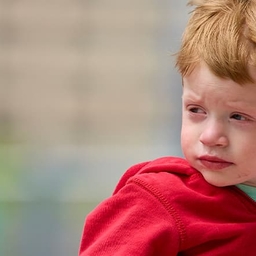Research News from CHOP


CHOP Researchers Show Liquid Biopsies Can Catch Disease Progression Early in High-Risk Neuroblastoma
CHOP researchers found that a series of “liquid biopsies” could less invasively and more accurately identify tumor changes in patients with high-risk neuroblastoma.
CHOP Study Finds Multiple Disparities in Completing Care After Concussions
Researchers from Children’s Hospital of Philadelphia (CHOP) found disparities in the completion of follow-up concussion care which will help inform future research at CHOP funded by a CDC grant that specifically aims to address such disparities.
CHOP Study Shows Nearly One-Third of Extremely Premature Infants Develops Late-Onset Sepsis
CHOP researchers have found nearly one-third of very premature infants develop late-onset sepsis and that 1 in 2 infants born at 23 weeks or earlier either died and/or developed the infection.
CHOP Study Finds CAR T-Cell Therapy Improves Survival Regardless of Socioeconomic Status
Researchers from Children’s Hospital of Philadelphia (CHOP) have found that economically disadvantaged children treated with CAR T-cell therapy for relapsed/refractory acute lymphoblastic leukemia (ALL) fair just as well as children from more socioeconomically advantaged backgrounds.
CHOP Researchers Find COVID-19 Vaccination Leads to Higher Antibody Levels than Natural Infection in Both Pregnant People and their Babies
Study also suggests vaccine timing is important in maximizing concentration of antibodies transferred to the baby.
CHOP Study Offers Proof of Concept for Treating Pediatric Brain Tumors with Immunotherapy
CHOP researchers have identified a protein on the surface of multiple pediatric brain tumors that they can target using immunotherapy in preclinical models.
CHOP Researchers Develop First Viable Preclinical Model for Rare Form of Mitochondrial Disease
The model helped identify two supplements that appeared to have therapeutic benefits.
CHOP Researcher Flaura Winston Awarded 2022 Robert Wood Johnson Foundation David E. Rogers Award
The award is given to a medical school faculty member who has “made major contributions to improving public health and health care.”

Abu Dhabi Health Services Company (SEHA) and Children’s Hospital of Philadelphia (CHOP) align to boost medical research and education in the UAE
Abu Dhabi Health Services Company (SEHA), the UAE’s largest healthcare network, has signed a Memorandum of Understanding (MoU) with Children’s Hospital of Philadelphia (CHOP) to facilitate enhanced international collaboration and further propel the quality of medical education, research, and patient experience within the UAE.
CHOP Researchers Characterize Hearing Loss among Genetic Subtypes of Mitochondrial Disease
In a retrospective study, researchers from the Mitochondrial Medicine Frontier Program at Children’s Hospital of Philadelphia (CHOP) and Lund University in Sweden determined the prevalence, severity, and timing of onset for hearing loss across different genetic subtypes of mitochondrial disease.